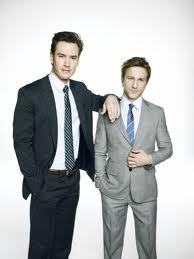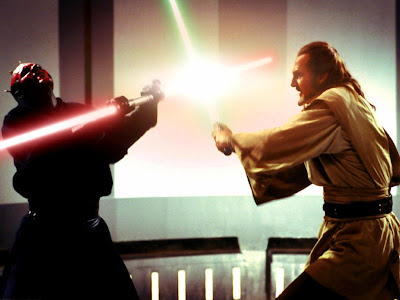
Tonight, at 9/8 Central on HBO, comes the long-awaited premier of Plaintiff’s attorney Susan Saladoff’s anti-tort reform documentary, Hot Coffee. We here at Abnormal Use have taken a special interest in the film since its original debut at the Sundance Film Festival in January. We have highlighted the background and potential bias of the film’s maker and prepared a detailed (and objective as can be) FAQ file on the infamous Stella Liebeck McDonald’s hot coffee lawsuit from which the documentary derives its name. In so doing, we have received many comments criticizing us for “reviewing” the film prior to having seen it. In fact, we were even accused of perpetrating a “dirty corporate disinformation campaign.” Well, after months of requesting a copy of the film from Saladoff, her publicity firm, and ultimately, HBO, we here at Abnormal Use obtained an advance screener. With that DVD in hand, we now offer our official review and commentary on this well publicized film.
Written and produced by Saladoff, the film offers four case studies to illustrate the alleged dark side of tort reform. Beginning with the Liebeck case, Saladoff argues that corporations improperly exploited that famed case to promote massive tort reform. Specifically, Hot Coffee alleges that the American Tort Reform Association and the United States Chamber of Commerce misrepresented the Liebeck case and duped many state legislatures into passing caps on certain recoverable damages. Further, the film suggests that these advocacy groups devastated America’s civil justice system by funding the judicial campaigns of candidates willing to serve corporate interests at the expense of consumers and sympathetic Plaintiffs. (The film points to three other cases, as well, though they are less famous than the Liebeck case.).
Those who see the documentary may likely be persuaded of the “evils of tort reform.” Saladoff brilliantly selects cases that tug on the emotional heart strings of even the most stoic of viewers. After witnessing the struggle of parents attempting to provide for a brain damaged child or hearing a woman explain her unsuccessful quest for a jury trial after being brutally raped by co-workers, uninformed viewers may leave the film with a distaste for tort reform – at least as Saladoff presents it. As a filmmaker and “documentarian,” Saladoff is persuasive, and she has garnered much attention from Hollywood for her efforts. (Indeed, non lawyer film critics are falling for her propaganda). Cynical as we are, and willing to dig deeper than casual viewers, we here at Abnormal Use are not so easily persuaded. Once one cuts through Hot Coffee‘s emotionalism, we see a film that exploits the McDonald’s case and other sympathetic litigants to promote Saladoff’s own personal agenda.
Call us crazy, but we thought a film entitled, Hot Coffee, would mostly be about, well, the hot coffee case. After all, the film’s website heralds: “Hot Coffee reveals what really happened to [famed McDonald’s hot coffee Plaintiff] Stella Liebeck . . .” and that “[a]fter seeing the film, you will decide who really profited from spilling hot coffee.” Saladoff told IndieWire: “The McDonald’s coffee case is the most famous case in the world, and yet almost everyone has it wrong.” Those are bold statements. Yet the 88 minute film dedicates only ten minutes to the Liebeck case. If the Liebeck litigation has become the “most famous case in the world” and misunderstood by the American public, Saladoff could have dedicated the entire film to debunking any purported misperceptions. Certainly, that’s what the title suggests she planned to do. But that’s not what she’s done. In reality, the McDonald’s case is nothing more than a cinematic hook to bring viewers to Saladoff’s more general propaganda.
Despite the short shrift the Liebeck case receives in the film, Saladoff argues that there are certain facts of the Liebeck case that were either somehow concealed from the public or never brought to light which, if known, would change the perception of the case from frivolous to somehow meritorious. Those facts are these:
(1) Liebeck spilled coffee while a passenger in a parked car, not as a driver in a moving vehicle;
(2) Liebeck was actually injured; she suffered second- and third-degree burns;
(3) McDonald’s policy was to serve coffee between 180-190 degrees;
(4) McDonald’s had been notified of 700 prior burnings;
(5) McDonald’s only offered Liebeck $800 to settle the litigation; and
(6) The jury’s punitive damages award was reduced to $800,000.
In selectively presenting these facts in this fashion, Saladoff contends Liebeck’s lawsuit was meritorious simply because she suffered actual damages and failed to show any desire to get-rich-quick. Unfortunately, it is not the presence of actual damages and a noble spirit which keeps a case from being frivolous. In fact, Saladoff neglects to address the point often made here at Abnormal Use: coffee is meant to be served hot and does not become “unreasonably dangerous” until negligently spilled by the consumer. This past week, when asked about our assertions on National Public Radio, Saladoff skirted around the issue, citing the same line that McDonald’s knew that hot coffee was, in fact, hot. Apparently, any effort to challenge her on that point is just another dirty corporate disinformation campaign.
Although the film makes much ado about corporate attempts to influence the process, the role of trial lawyer and civil justice groups is surprisingly omitted. (Apparently, it is only corporations that fund promotional campaigns to influence the judiciary and the electorate.). Nevertheless, the film criticizes corporations for hiring PR firms and hiding behind benevolent sounding front groups like the American Tort Reform Association, the U.S. Chamber of Commerce, or the Citizens Against Lawsuit Abuse. Saladoff herself, however, has a long history of being involved in opposing groups, such as the Trial Lawyers for Public Justice and the American Association for Justice. Of course, Saladoff would have you believe that these groups are noble entities formed to protect our citizens which would never participate in such conduct. Right.
Hot Coffee also documents the story of Oliver Diaz, a former Mississippi Supreme Court Justice, to accuse the U.S. Chamber of Commerce of funneling money into the judicial campaigns of pro-tort reform candidates. The film suggests that Diaz found himself running against a candidate hand picked and funded by the Chamber. But here’s the catch: the film concedes that trial lawyers often donate to their own judicial candidates. But the film attempts to minimize this fact by noting that trial lawyers are limited by law in the amount of money they can donate. This seems a bit unfair, right? Big corporations are buying seats for judges while trial lawyers must sit idly by due to unfair, oppressive campaign finance laws? Is the story truly so bleak for trial lawyers and their own advocacy groups? Not really.
First, Diaz actually won his election thanks to a hefty donation from prominent trial lawyer, Paul Minor (whose well-publicized 2007 conviction for judicial bribery six counts of honest services mail fraud, two counts of judicial bribery, one count of honest services wire fraud, and one count of racketeering you might recall (though in full disclosure, the Fifth Circuit reversed the feberal bribery convictions in 2009, though, Minor was recently re-sentenced to eight years in prison in connection with the other charges.). Second, famous plaintiff’s attorney Richard Scruggs, referred to certain Mississippi counties as “magic jurisdictions,” which he defined as:
[W]here the judiciary is elected with verdict money. The trial lawyers have established relationships with the judges that are elected. . . .They’ve got large populations of voters who are in on the deal, their getting their [piece] in many cases. And so, its a political force in their jurisdiction, and its almost impossible to get a fair trial if you are a defendant in some of these places. . . . These cases are not won in the courtroom.
For some reason, Saladoff neglected to include that information. And, we thought it was tort reform which was trying to close the courtroom doors?
The film also chronicles the cases of Colin Gourley, a boy who sustained brain damage as the result of medical malpractice during his mother’s pregnancy and delivery, and Jamie Leigh Jones, a woman raped and imprisoned while working for Halliburton subsidiary KBR in Iraq. By using these tragic and sympathetic stories, Hot Coffee garners sympathy for the anti-tort reform movement while deflecting attention away from the fact that it is not just plaintiffs who benefit by opposing tort reform. Of course, trial lawyers like Saladoff benefit in the best of ways: financially. The larger the verdict for the plaintiff, the larger the payday for the trial lawyer. It is noble to stand up for those who may have been wronged, but don’t present yourself as a disinterested party and cloak yourself in the guise of pure altruism when doing it.
Our original piece chronicling Saladoff’s history as a plaintiff’s lawyer and longtime affiliation with the Association of Trial Lawyers of America rang truer than we even realized. In fact, it was cited just yesterday in The New York Times by its legal correspondent John Schwartz who, however, downplayed Saladoff’s possible lack of objectivity. (We wonder what Schwartz would think about an environmental film produced by an oil company.). Schwartz did concede, though, that Saladoff is an “advocate.” As editorialists ourselves, we would never object to someone simply expressing a point of view; we love the vast marketplace of ideas (though we find Saladoff’s background highly relevant to the message she offers). In this case, our goal is, and has always been, to expose potential bias and inconsistency, especially in light of the film’s presentation as an objective documentary peddling in previously unknown “truths.” Just as Saladoff accuses the media of exploiting an allegedly meritorious hot coffee case, Hot Coffee is guilty of the same offense. Saladoff preys on the emotions of viewers to advance her profession’s own special interests.
Saladoff declined multiple requests from Abnormal Use for interviews, both in January and this week prior to the film’s HBO premier. (Actually, she initially accepted an interview request in January, then canceled at the last minute after the interview had been scheduled, and we never heard from her again.).
The film premiers tonight on HBO at 9/8 Central.























